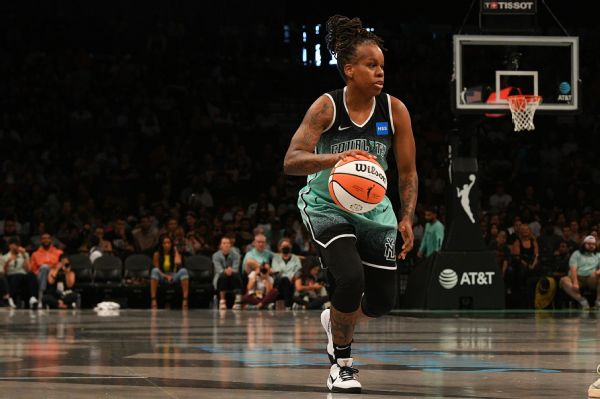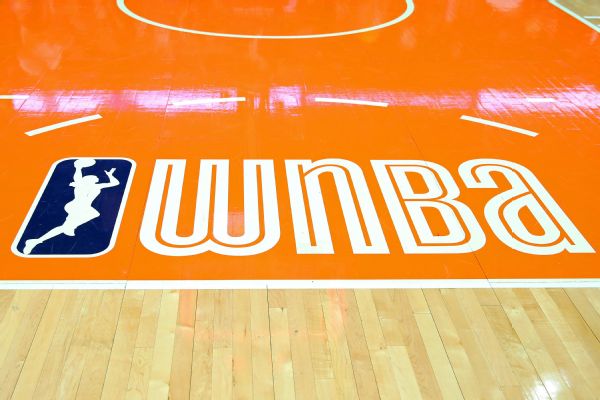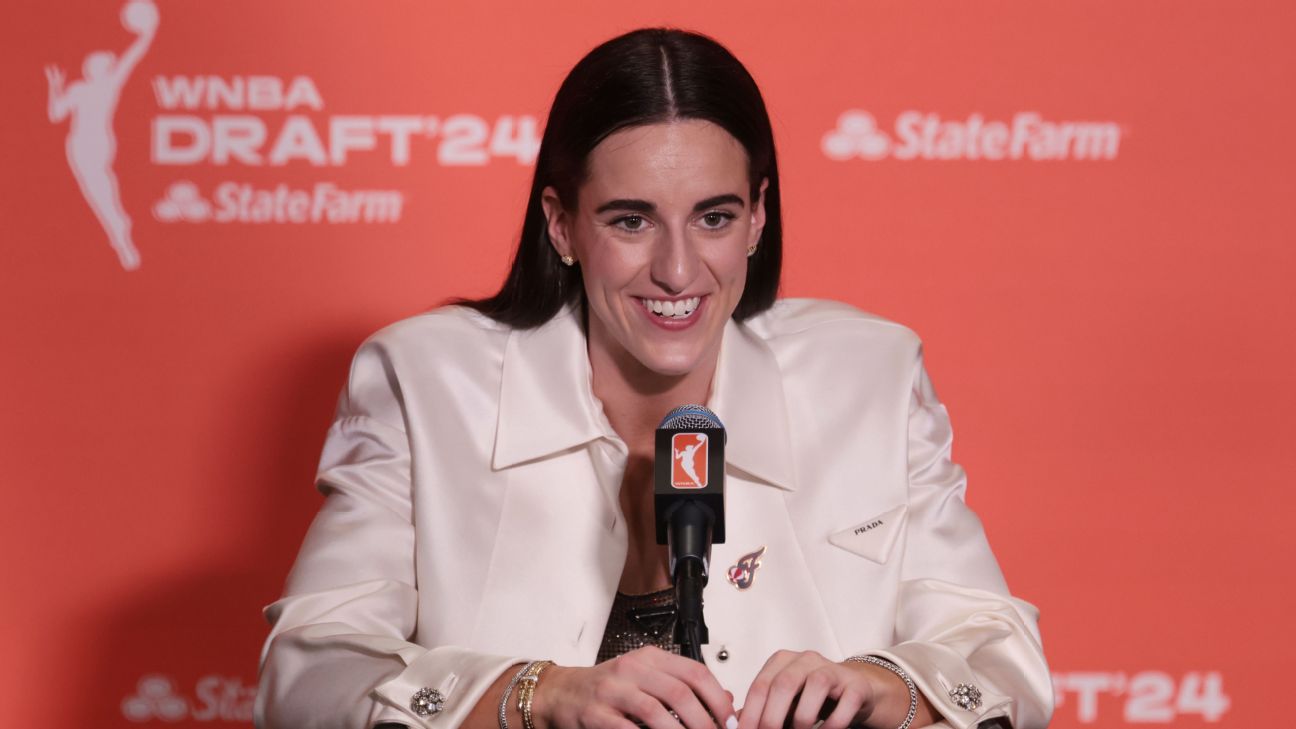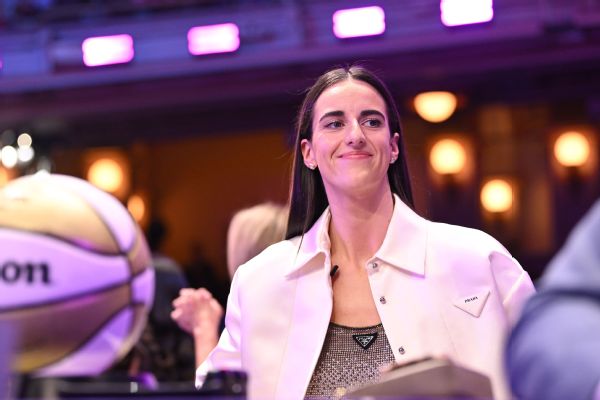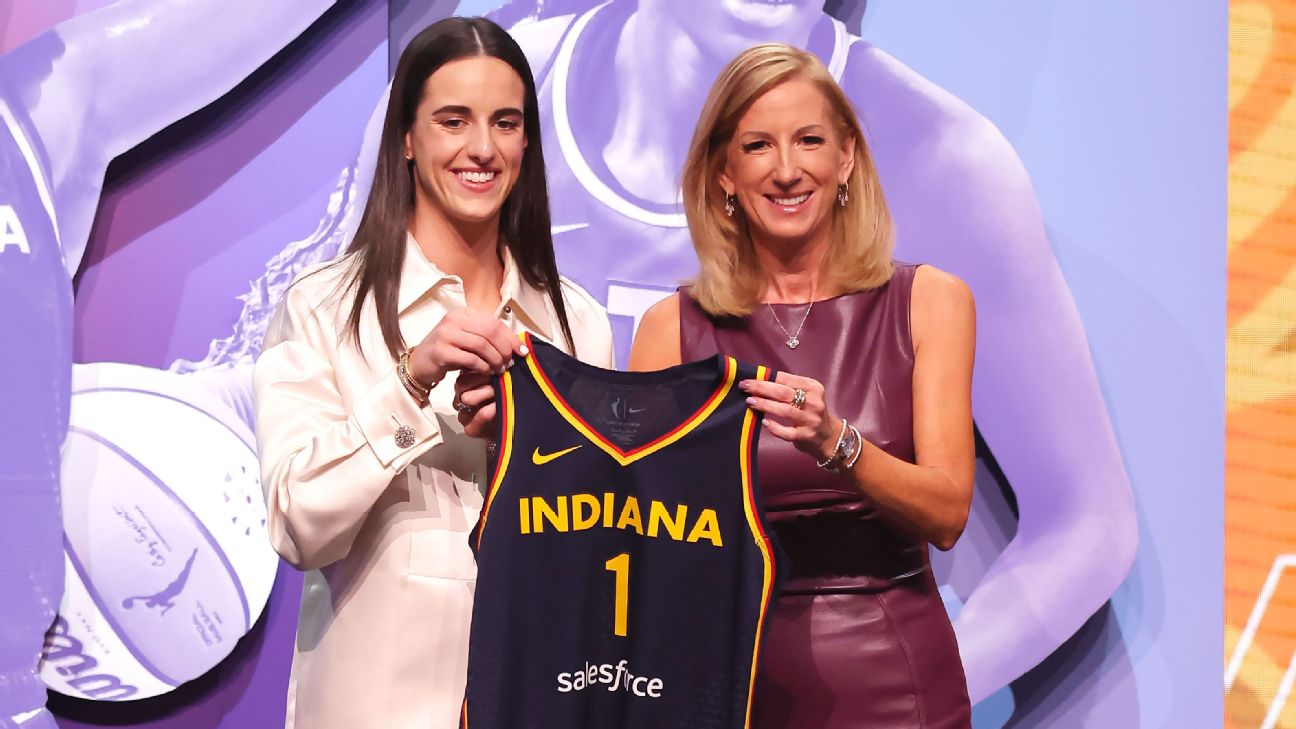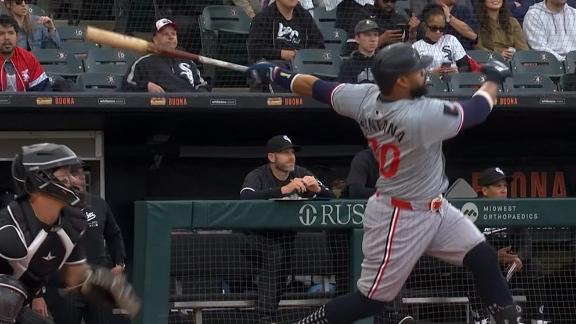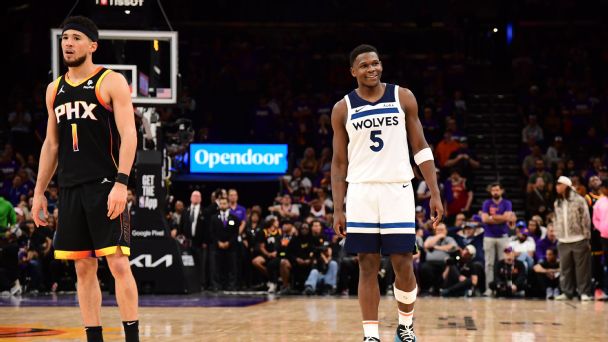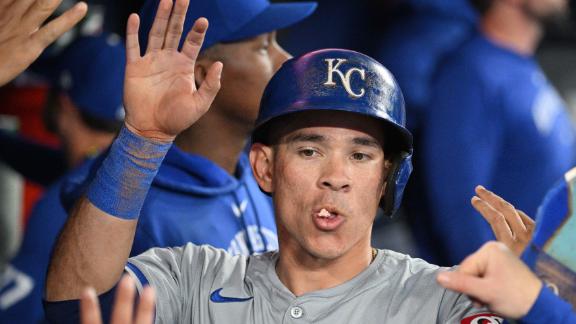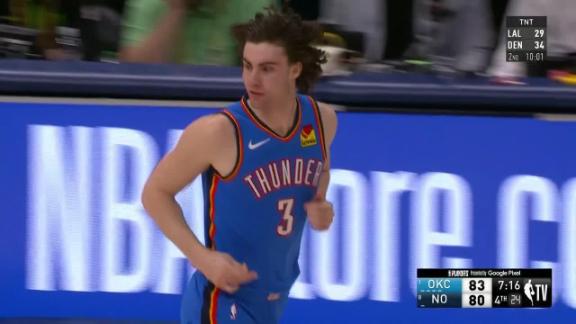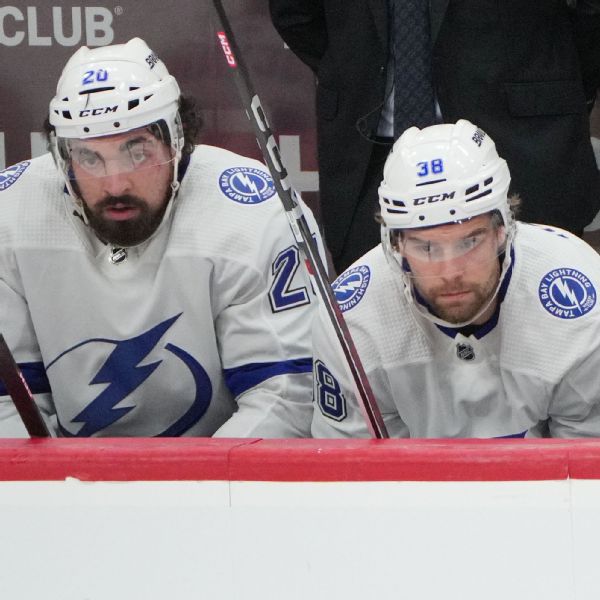![Leverkusen celebrate [1296x729]](https://a.espncdn.com/photo/2024/0413/r1318242_1296x729_16-9.jpg)
Source Man Utd not expecting Rashford offers
On May 27, 2023, as a stunning German Bundesliga title race played out with Borussia Dortmund handing first place to Bayern Munich in the final minutes of the final game, Xabi Alonso's first Bayer Leverkusen team quietly no-showed at Bochum. Amine Adli suffered a red card in the eighth minute; Bochum star Takuma Asano had a goal and an assist; and the home team rolled to a 3-0 win.
It was undoubtedly a delightful match for Bochum fans, but it had no impact on Leverkusen's spot in the table. They finished sixth and qualified for the Europa League, a solid consolation prize after a dreadful start to the season.
A match like this can easily disappear into the ether, but right now, Bochum's win remains the answer to a trivia question of sorts: Forty-three matches and nearly 11 months later, it is the last time Bayer Leverkusen lost a match -- that's the longest stretch of unbeaten play to start a season across Europe's Big Five leagues in at least 60 years.
Leverkusen clinched their first Bundesliga title on Sunday with a 5-0 romp over four-time champions Werder Bremen, and it's the first of a few prizes still left on the table. They are 90 minutes from the Europa League semifinal -- their odds of winning the tournament are nearly 50-50, per ESPN BET -- heavy favorites against second-division Kaiserslautern in the DFB-Pokal final, and on pace for the highest points total in Bundesliga history.
The league title sealed a historic season for the factory club, one that erased the "Neverkusen" label forever, ended an 11-year title streak for Bayern Munich and gave us a new first-time champion in one of Europe's Big Five leagues -- they are the first first-timer since 500-1 outsiders Leicester City won the Premier League in 2015-16, in fact. But this wasn't just a streak-busting situation. Despite recent struggles, Bayern are still on pace for more points (74) than they had last year when they won the title (71). They just got swamped by something absolutely historic.
This Bayer Leverkusen team has a chance to go down as one of the best Germany has ever produced. How was this incredible squad built, and what might come next for this workers club-turned-Bundesliga champ?
Put another way: Now that they've made history, can they go and repeat it next season?
Consistency and 'plastic'You can make a pretty good case that the best possible thing for the Bundesliga was for Bayern's title streak to end, no matter how it happened. The league's style of play is always aggressive and aesthetically pleasing, and all the other races in the league are typically quite exciting; even historic heavyweights like Hamburg can get relegated, while recent races for the top six have included a mix of stalwarts (Bayern, Borussia Dortmund, RB Leipzig, Bayer Leverkusen), historic powers with huge fan bases (Eintracht Frankfurt, Borussia Monchengladbach), and little-team-that-could stories (Union Berlin, Freiburg, Hoffenheim). But "No one can compete with Bayern" has steadily been given as a reason many fans don't take the Bundesliga seriously or follow it as closely as they otherwise might.
Leverkusen's title could have a massive impact in that regard, although the club's presence as a league heavyweight will forever irritate some. Leverkusen is a city of only about 160,000 -- about the size of Macon, Georgia, or Springfield, Missouri -- and the club has benefited mightily from the financial input of Bayer. Employees of the pharmaceutical giant established the club in 1904, and after spending 75 years in mostly lower tiers, Die Werkself (loosely translated as the "factory 11") got promoted to the Bundesliga in 1979. They've never left.
When the 50+1 rules were established in Germany in the late 1990s, assuring that club members would always have a voting majority over matters, Bayer Leverkusen were granted immunity from its requirements because of Bayer's longtime impact. (Other clubs, such as Volkswagen's Wolfsburg and Hoffenheim, the latter run primarily by software billionaire Dietmar Hopp, have also been granted exceptions through the years. Along with RB Leipzig, for which energy drink giant Red Bull found 50+1 workarounds, they are generally regarded as "plastic" clubs by German fans.)
In practice, Bayer's presence ensures that the club's floor remains far higher than most in Germany. Whereas a club like Schalke has fallen victim to bad decision-making and massive debt issues -- and has tumbled into the bottom half of the second division because of it -- Bayer can cover up poor decisions with infusions of debt-free cash. Germany has the most well-supported second division in the world because potentially huge clubs -- Schalke, Hamburg, Hertha Berlin, Fortuna Dusseldorf, Kaiserslautern, all of whom have drawn over 40,000 fans per game this season -- are stuck with the consequences of their actions. Bayer Leverkusen, meanwhile, have finished in the Bundesliga's top six in 30 of the past 38 seasons (and 14 of the past 15.)
This is never going to sit well with some German fans, and it's not hard to see why. But this is still, at its heart, a factory club. It had one of Germany's first ultras groups, and its fans are creative and loud. The BayArena isn't one of Germany's great fortresses: it's sparkly and modern and looks great on TV, but it holds only 30,210 fans. That's unimpressive until you remember that's nearly 20% of the city's population. Borussia Dortmund's famed Signal Iduna Park holds 81,000, but in a city of nearly 600,000.
In other words, the tears shed on the BayArena pitch after Sunday's win were genuine, coming from fans who went through plenty of heartbreak to enjoy that moment.
It's also worth noting that Bayer's investment doesn't assure a Bayern-esque ceiling. The club had to create that. And after so many near misses two decades ago, the stars finally aligned in recent years.
The art of the parlayYou transfer your best young player and, with some of the proceeds, acquire four more players who will be just as good. Rinse and repeat, and eventually you win big. It's the approach that allows you to turn any club into a European champion in the video game Football Manager, and, in essence, it's the strategy that plenty of developmental clubs in Europe attempt in real life. But although it seems a lot harder to constantly stick the landing in real life, Bayer Leverkusen have made it look pretty easy.
In 2019-20, they moved midfielder Julian Brandt to Borussia Dortmund for around €25 million and acquired, among others, center-back Edmond Tapsoba, midfielder Exequiel Palacios and winger Moussa Diaby for around €50m.
In 2020-21, they parlayed Chelsea-bound Kai Havertz (€80m) into forward Patrik Schick (€26m) and wing-back Jeremie Frimpong (€11m).
In 2021-22, they turned a €32m transfer for Aston Villa-bound Leon Bailey into the signings of winger Amine Adli (€7.5m), defenders Odilon Kossounou (€23m) and Piero Hincapié (€6m), and midfield enforcer Robert Andrich (€6.5m).
Translation: Leverkusen turned three players into a big percentage of the club's 2023-24 lineup. Throw in an incredibly astute youth move when they brought 16-year-old Cologne under-19 star Florian Wirtz to the club for €200,000 in January 2020 -- after the COVID-19 stoppage, he made his senior debut by May of that year -- and you have the makings of a deep, young and exciting team.
After finishing in the top four only once in the previous five seasons, Leverkusen surged to third under manager Gerardo Seoane in 2021-22. Schick, Diaby and Wirtz were shockingly good up front, combining for 44 goals and 25 assists between them in league play. When Wirtz tore his ACL in March 2022, others stepped up and clinched a top-four finish. Even without Wirtz for the first few months of 2022-23, the club was back in the Champions League and the future seemed bright: former Leverkusen midfielder Simon Rolfes, one of the brains behind the recent smart moves, was stepping into the managing director role long filled by Rudi Voller. Strangely, things briefly fell off course when the parlaying stopped.
It was a big deal that the club kept hold of Diaby, Schick and pretty much everyone else after the success of 2021-22. "It helps to keep the best players," Rolfes said in 2022. "If we can keep the top layer [of stars] one, two years longer, maybe three or four years, it's a big success for us. With that we can grow in performance."
Optimism was high, but Leverkusen instead began the 2022-23 season with a shocking two wins, two draws and eight losses in their first 12 games in all competitions. They fell to third-division Elversberg in the first round of the DFB-Pokal and lost three of their first four games in the Champions League; when Seoane was fired on Oct. 5, the club was second-from-bottom in the Bundesliga table.
"It was a surprise because we kept all our good players," Rolfes told me recently. "We had finished in third position, played very good. I think we scored 80 goals, the most in the history of Leverkusen. And then we started playing poorly. That was in a massive way a surprise.
"You have to analyze, OK, how can we get out of this bad situation. I had the feeling that, with the former coach, it would not work again." The club had to make a move.
Enter the perfect managerIt certainly adds to the Xabi Alonso lore to mention that he turned a team stuck second-to-last in the Bundesliga into a league champion. It's technically true, too, but this squad was far too talented to ever drift that low, even with Wirtz still out of action. At the time, it felt like a massive risk to ask someone as inexperienced as Alonso to arrest the slide. Then again, Rolfes had been watching Alonso for a while.
A former star midfielder at Real Sociedad, Liverpool, Real Madrid and Bayern -- and a heady player with magical technical abilities who was long seen as a surefire future coaching star -- Alonso had been managing Real Sociedad's B-team since 2019, slowly building his coaching experience. And after interviewing Alonso, Rolfes was quickly convinced that he had found his man.
"The talks confirmed what I thought," he said. "We already had quite good information -- analysis about how he plays, what we could expect, how it would fit our players, his personality, how he is as a person -- and the personal conversation I had with him confirmed this. He could gain [experience] here, and we as a club could also support him. I think that's also important: We have a good, stable club. We have a good coaching staff here who can help him, very good guys. And then in my position, my relationship with him, I have to support him."
The turnaround was slow at first. Leverkusen stomped Schalke 4-0 in Alonso's first match on the sideline, but lost to Porto and Eintracht Frankfurt by a combined 8-1 in the next two matches. His first seven matches in all competitions netted just six points. "It was a tough time, the first month," Rolfes added. "But it was a good time to get to know each other really well. In difficult times you see how you will work with each other."
Beginning with a 5-0 win over eventual fourth-place finisher Union Berlin on Nov. 6, everything ignited. From that point forward, Leverkusen played at a top-four pace, and after dropping to the Europa League after their slow start in the Champions League, they made the most of it, beating Monaco, Ferencvaros and Union Saint-Gilloise to reach the semifinals before an unfortunate loss to Roma. The run reinforced the turnaround they were enjoying in league play. From 17th, they had risen to sixth by the end of the season. Wirtz was at full strength again, and despite injuries and a season-long slump from Schick, there was again reason for optimism heading into a transformative summer.
The perfect summerEighteen players have logged at least 1,000 minutes for Bayer Leverkusen in all competitions in 2023-24. Seven of them came aboard during an utterly transformative summer.
It was the ultimate parlay for a club that has pulled off several: after bagging 31 goals and 24 assists in two seasons, Diaby moved on to Aston Villa for a transfer fee of €55m. Midfielder Mitchel Bakker left for Atalanta for €9.5m, too. Rolfes and company turned most of that money into right winger Nathan Tella (€23m from Southampton), forward Victor Boniface (€20m from Union Saint-Gilloise) and two key veterans: Arsenal midfielder Granit Xhaka (€15m) and Borussia Monchengladbach winger Jonas Hofmann (€10m). Benfica's left wing-back and free-kick maestro, Alex Grimaldo, arrived via free transfer; 23-year old cup goalkeeper Matej Kovar came from Manchester United for €5m; and defender Josip Stanisic, out of favor with cranky Bayern manager Thomas Tuchel, arrived on loan.
Just like that, Leverkusen had the deepest, most exciting squad in Germany.
"We knew that we had signed individually good players," Rolfes said. "And that we should be better than the season before. There were a lot of reasons that we could be optimistic. In the preseason, in training, we felt, OK, we have quite a good team. But in the preseason it's like a honeymoon sometimes, everything is fine. Beware of preseason! The real test is under pressure. How resilient is this squad? Is there a real relationship growing between the players? If something is not happening, are they complaining about each other or playing for each other?
"[Under pressure], this team just grew stronger and stronger."
Nobody aces every transfer window, but one this good can completely change a club's trajectory. Grimaldo has combined 11 goals with 15 assists in all competitions, and despite missing nearly three months to injury, Boniface has 18 and nine, respectively.
When Boniface went down, Tella (six goals, three assists) was among those who stepped up. Schick, relegated to mainly a bench role thanks to the squad's depth, has become a super-sub, scoring 11 goals, two of which tied games and four of which gave Leverkusen the lead. Five came after the 85th minute, and three came in stoppage time against Qarabag -- one in the first leg of their Europa League round-of-16 comeback win, two in the second.
In all competitions, Leverkusen have scored 10 goals in the 90th minute and beyond, while allowing none -- Liverpool are the only other Big Five team with a plus-10 differential -- and that has contributed to the best close-match record in Europe: they are averaging 2.47 points in league matches decided by zero to one goals. Within the Big Five, Barcelona (2.26), Real Madrid (2.25) and Inter Milan (2.13) are the only others above even 2.0. All 18 of these primary contributors have contributed something key in a key moment.
Xhaka's contributions have been particularly noteworthy. The Switzerland midfielder has been a perfect pivot man of sorts -- he leads the team in progressive passes (602), is third in progressive carries (412), and is also first in ball recoveries (268) and second in defensive interventions (413). He's just always there, leading the team in minutes (3,444) and touches (4,509) as well as pass attempts (4,041) and completions (3,730). He has become the team's steadying presence on and off the pitch.
"Granit was really important because the [No. 6] position is the heart of the game, of the team," Rolfes said. "He fits perfectly to our playing style. His position was much more offensive at Arsenal, but here he's more [about] controlling the game. From a sporting side, he's met the expectations for sure, but it's not only his ability as a player -- also, as a leader, as a fixed point, he gives the orientation to others. We have an international sport, and he is able to speak English and German. He's a face in the media and for the fans. And this transfer was also a good statement. Ambitious. You cannot develop a good organization in 10 months, but it supports the acceleration of the organization."
The "Neverkusen" label emerged roughly 20 years ago, when the club had a shot at an international treble only to come up short in all three competitions -- Bundesliga (Borussia Dortmund charged back to win the title), DFB-Pokal (losing 4-2 to Schalke in the final), and Champions League (losing 2-1 to Real Madrid in the final after taking down Barcelona, Juventus, Liverpool and Manchester United to get there).
So far, this masterful run of roster building has resulted in the most important trophy in the club's 120-year history and forever shaken off the derisive nickname. But there's more at stake over the season's final month. Leverkusen are two points from the best Bundesliga point total ever posted by a club other than Bayern -- the record, held by Jurgen Klopp's Borussia Dortmund, is 81 in 2011-12 -- and, with five matches remaining, they are 14 points (four wins and a draw) away from the overall record of 91 set by Bayern in 2012-13.
There's still a "Redemption Treble" in play, too. Leverkusen will indeed be heavily favored in the May 25 DFB-Pokal final, and if they can shake off the hangover from the current title celebrations and properly see off West Ham in Thursday's Europa League quarterfinals -- Leverkusen hold a 2-0 lead after the first leg -- then they will be back in the Europa League semis for the second straight year and favored over the winner of Roma vs. AC Milan. (Roma lead 1-0 after the first leg.)
So what's next, and how far can they go?When you aren't a part of soccer royalty, you usually have to enjoy your successes when they come because they don't last long. The sport's ruling class always responds with vigor, but Bayer Leverkusen have already scored a couple of huge wins as they prepare to defend their title and return to the Champions League.
For one, €100m-rated Wirtz has already signaled that he is uninterested in a summer move, and all signs currently point to a 2025 departure at the earliest. That's huge considering that, even with so many players making big contributions over the past eight months, Wirtz has been by far their best player. He's second on the team in goals in all competitions (17) and first in assists (18), combined xG + xA (expected goals plus expected assists from pass completions), chances created.
Xhaka and others might be key to advancing the ball into the attacking third, but once it's there, Wirtz takes over. His 426 combined progressive carries and passes in the attacking third is far more than anyone else on the team -- Frimpong is second with 304, Grimaldo third with 250 -- and the tally shows the dramatic progress he has achieved in recent years.
Those are raw numbers above, and they're impacted by the minutes he missed from his ACL injury, but even on a per-90-minutes basis, his rates have exploded from 7.5 in 2021-22 and 6.8 last season to 12.2 this season. In 2022, Rolfes was already in awe of Wirtz's potential. "You have to imagine that [a young player] is able to reach that level," he said. "And you sign him because of what you imagine in your fantasy of the player. But then you have to check, OK, where will he be in the squad? If he's too weak and has to grow, then that [slows] your development. How fast it goes is really difficult to say. With Florian Wirtz, it took six weeks."
One assumes that, along with Wirtz, most of the core -- Xhaka, Grimaldo, Andrich, Hofmann, plus longtime club mainstays defender Jonathan Tah and goalkeeper Lukas Hradecky -- will also return in 2024-25. Plenty of Premier League teams are rumored to be ready to pay big money for a player such as Tapsoba or (especially) Frimpong, but recent history suggests that the club won't fear what happens with a departure or two: They'll just bring in another batch of difference-makers at low cost.
Most important, however, was Alonso's decision to stay. Even as rumors swirled for months regarding interest from clubs such as Bayern and Liverpool, Rolfes projected confidence in his club's ability to keep Alonso on board for a little while longer. "He feels really happy here," he said. "He brought his family with him to Germany; they are integrated in the life here." And sure enough, that confidence was rewarded when Alonso announced in March that he would be back at the BayArena in 2024-25.
If nothing else, this will allow Leverkusen to see how long they can stretch this run, and there is some precedent for continuing it. After all, the last time a non-Bayern team won the Bundesliga, it did it twice: Klopp's Borussia Dortmund won in 2010-11, then improved with an even deeper young roster core in 2011-12.
To be sure, with so much late-game magic and a close-games record that is just too good to sustain, it's going to be just about impossible for Bayer Leverkusen to match this season's feats. (They will likely lose a match before April, in other words.) But they will have the talent and depth to make noise in the Champions League -- they haven't made it to the round of 16 there since 2016-17 -- and if Bayern need a little while longer to get their act together, another title run will be more than realistic.
A lot of this will depend on Bayern, though. The last time someone else -- Klopp's Dortmund -- ruled the Bundesliga, the German giants adapted portions of their playing style to resemble their rivals, then signed two of the club's most important players (Mario Götze and Robert Lewandowski). Even as Dortmund reached the Champions League final in 2013 (which they rather cruelly lost to Bayern), their two-year title run had already come to a crashing halt thanks to Bayern's record points total.
Bayern have been slowly sliding for a number of years, as if they needed their title streak to end before undergoing a major redesign. But the streak is officially over, and while there's a new management team in place in Munich, the first stab at a rebound was familiar: the club went after Alonso. Maybe Bayern will eventually get him; Wirtz, too. But in 2024-25, they have to find a new playbook to follow. This Leverkusen run doesn't have to end just yet.



